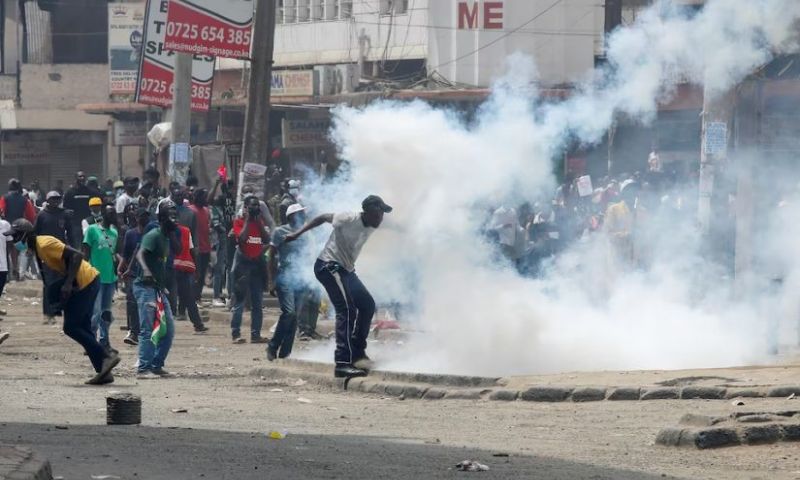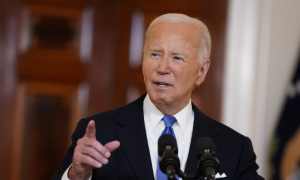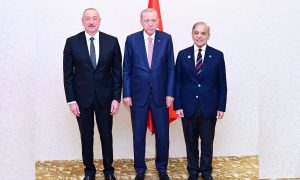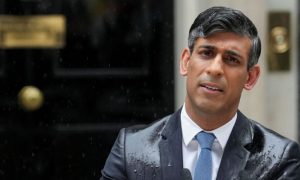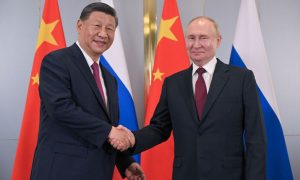NAIROBI: Kenyan riot police fired tear gas at demonstrators in Nairobi on Tuesday and protests erupted in other cities across the country demanding the resignation of President William Ruto, following a week of deadly clashes in anti-tax protests demonstrations.
In Nairobi’s downtown area, clouds of tear gas enveloped Waiyaki Way, the city’s main thoroughfare, where protesters set fires and hurled stones at police officers in the central business district. Similar scenes unfolded in other cities, including Mombasa, where hundreds marched spiritedly carrying palm fronds, blowing plastic horns, and beating drums, chanting “Ruto must go!”
President Ruto, facing one of the most significant challenges of his nearly two-year presidency, has been grappling with mounting pressure from lenders such as the International Monetary Fund (IMF) to reduce deficits, juxtaposed against a populace struggling with skyrocketing living costs.
The protest movement, decentralized and largely coordinated via social media, has rebuffed Ruto’s calls for dialogue even after he abandoned proposed tax hikes that initially sparked the unrest.
“We are not money. We are people. We are human beings,” protester Milan Waudo asserted in Mombasa.
Protests also unfolded in Kisumu, Nakuru, Kajiado, Migori, Mlolongo, and Rongo, with reports of tires set ablaze in the southwestern town of Migori.
Since June 18, dozens of Kenyans have lost their lives in clashes with police, the majority from gunfire during last Tuesday’s attempt by some protesters to storm parliament ahead of a vote on tax increases, according to the Kenya National Commission on Human Rights (KNHCR).
Outraged by the deaths, which the KNHCR tallied at least 39, many demonstrators are now demanding President Ruto’s resignation, intensifying calls for accountability amid accusations of excessive use of force by security forces.
“We are determined to push for the president’s resignation,” affirmed Ojango Omondi, an activist in Nairobi, urging for peaceful protests and minimal casualties.
State House communications director Gerald Bitok appealed for calm, emphasizing the importance of patriotism and non-violence amidst the unrest gripping the nation.
The protests, initially sparked by public outrage over proposed tax increases totaling nearly $2.7 billion, have since evolved into a broader movement highlighting systemic corruption and governance failures.
Ruto has directed the treasury to explore expenditure cuts to address budget shortfalls resulting from scrapped tax plans, while also hinting at the necessity for additional borrowing.
Anti-corruption campaigner John Githongo expressed skepticism over the government’s commitment to address protester demands, including combating corruption within its ranks.
“There hasn’t been any indication by the government that they are going to take the calls to deal with corruption seriously,” Githongo remarked.
While demonstrations had largely been peaceful until last week’s escalation, Ruto has defended police actions, attributing the violence to “criminals” exploiting the protests for their own ends.









